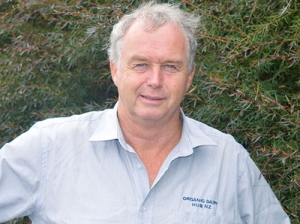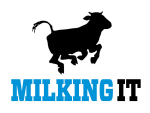Local processors have been slow to embrace organic milk, despite organic whole milk powder prices having topped US$14,000/tonne, versus US$2200/t for conventional whole milk powder.
Organic Dairy Hub, a co-op set up one year ago to organise organic dairy farmers, says international buyers with orders for organic products are being turned away.
Chairman Bill Quinn says as a result foreign companies are partnering with local businesses to set up processing plants. These companies are talking to the Hub about supplying organic milk.
This season (ending on May 31) 14 farmers have supplied 10 million L of organic milk to the Hub, whose turnover is $8 million; its average payout to farmers was $7.20/kgMS.
It hopes to supply next season at least 20m L of organic milk to processors. The Hub sold all its milk this season to Green Valley Dairies, a South Auckland processor; it was processed into liquid milk and ice cream for the local market.
Organic Dairy Hub has announced a forecast payout of around $8.50/kgMS for next season.
Quinn says the Hub is ready to supply organic milk to processors. "We have farmers out there wanting to be organic -- system 1 and 2 farms who are already pretty much organic."
He says New Zealand is missing out on lucrative payouts by major processors by not giving organic milk enough importance.
"We are missing out on a market opportunity; overseas buyers are willing to pay for it. We, as a nation, are going to miss out on part of that rich reward because they have come here and put their own capital into the plant... because our processors are saying 'we don't handle organic milk, we only handle conventional milk'."
Quinn says for a country that prides itself on its 'clean and green' image it's behind the eight-ball when it comes to organics. "We are turning people away at the border who are asking for organic milk products."
Demand for organic products is coming from the US, Asia and in particular China. Young mothers are keen to give their children organic milk, free of herbicide and chemical residues. People with rising incomes in developing countries are willing to pay more for safer products.
Quinn says with better taste and great environmental credentials, organic milk products have great marketability.
"There is a story and provenance around it, and it can be marketed in different ways to different people."
He says while organic whole milk powder fetches a 500% premium over conventional WMP, NZ cannot quote a price for some organic products on the commodity markets, simply because there are no products available.
Quinn says organic cheese buyers in the US are seeking NZ products.
"Organic butter... one customer wants a 100 tonnes of butter as a start up order, another wants 300t.
"And we say, 'we have the milk but not the space in the processing [plants]'. That's why foreign investors are coming in and setting up new plants because our existing [companies] either cannot or will not entertain doing organics."
Quinn is aware of at least 15 projects at various stages of design.
"Not all will get through but those that will are keen to link with farming groups frustrated with the current processing system."


















